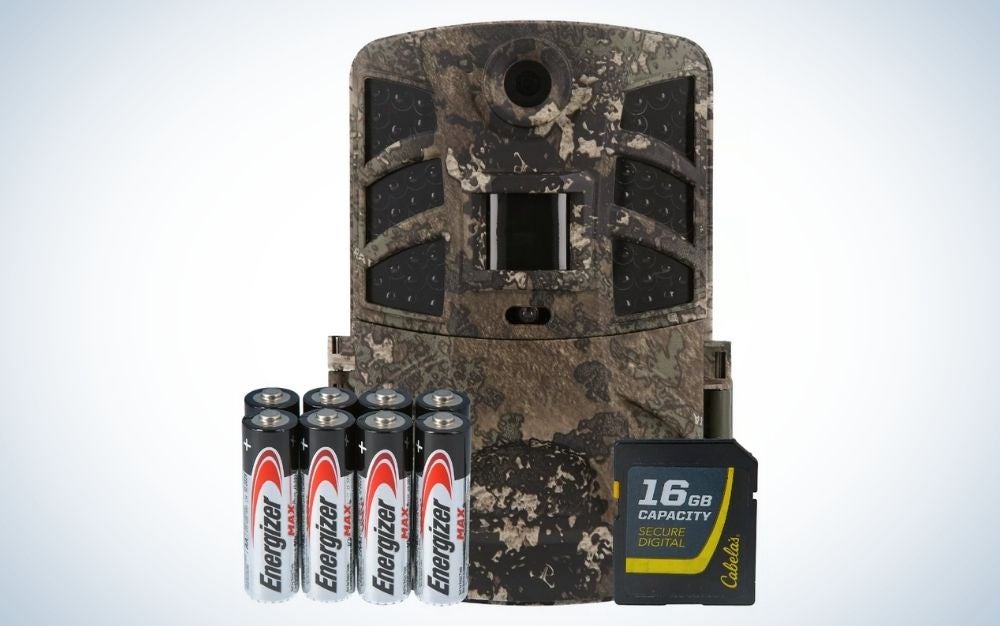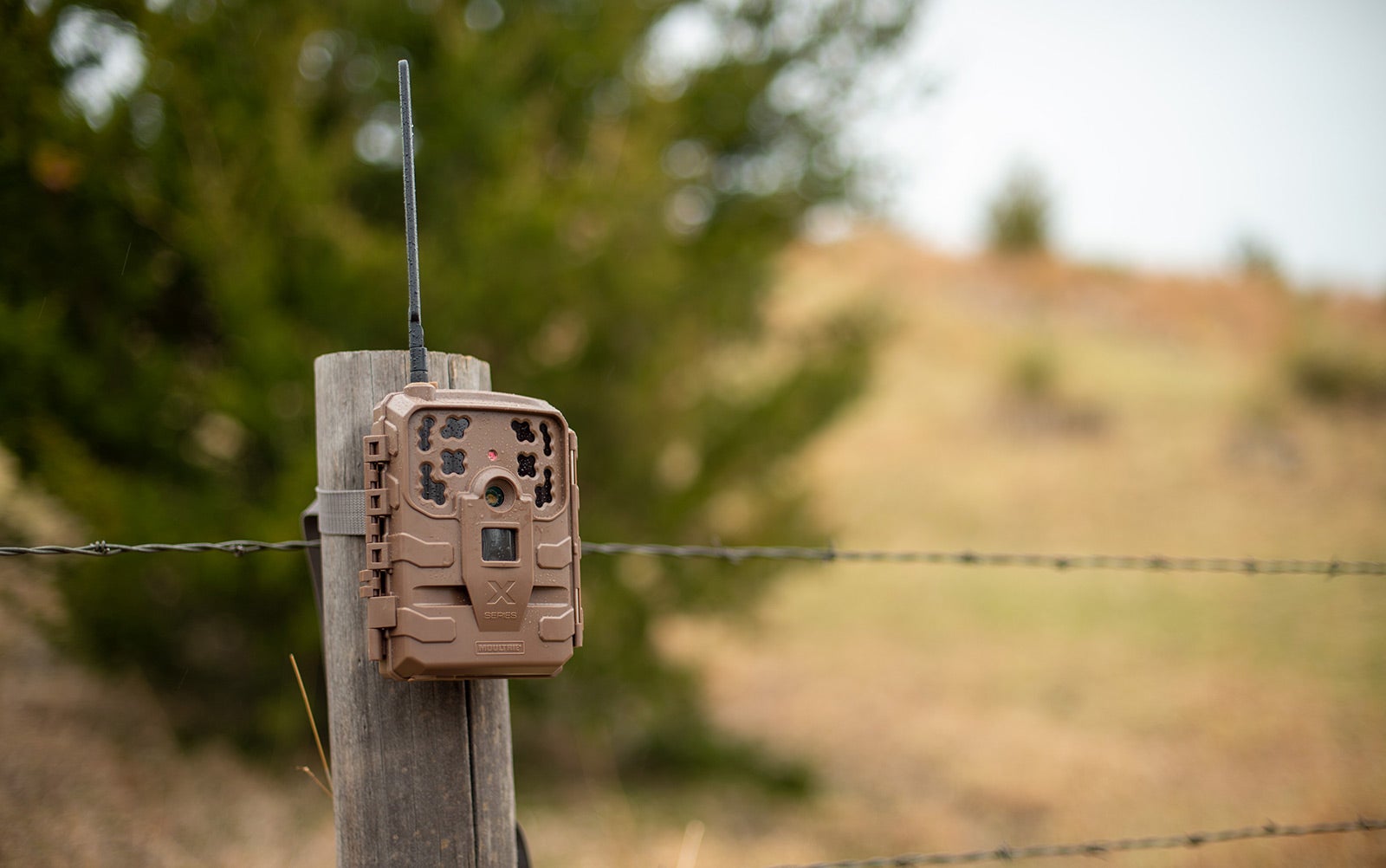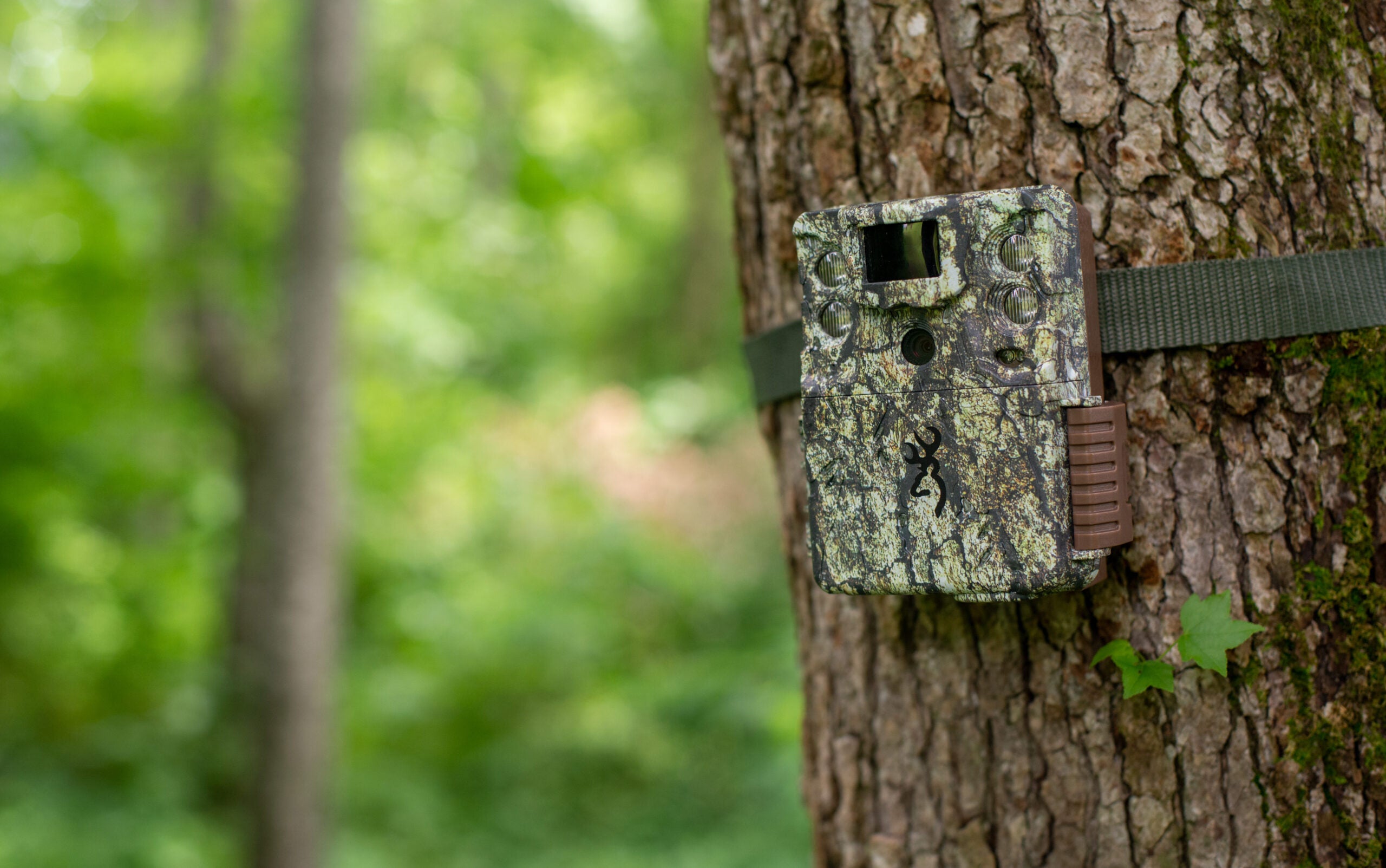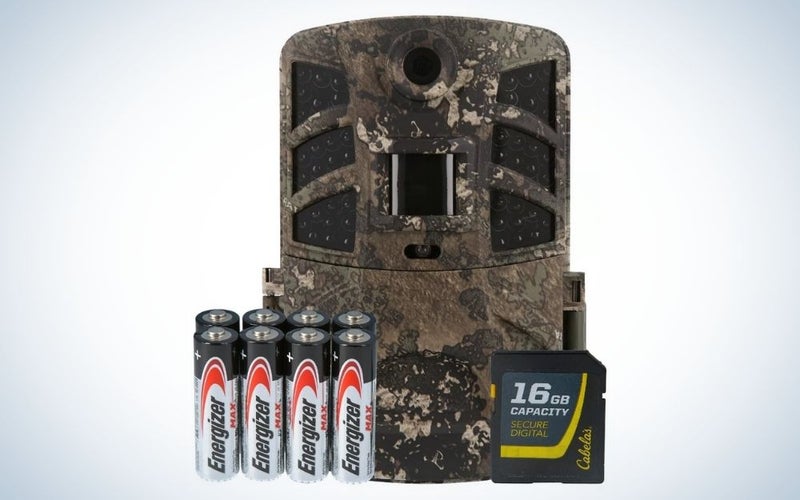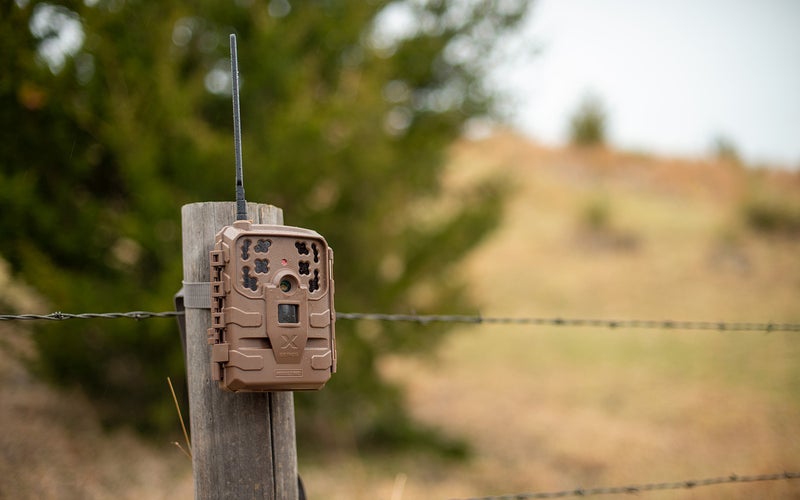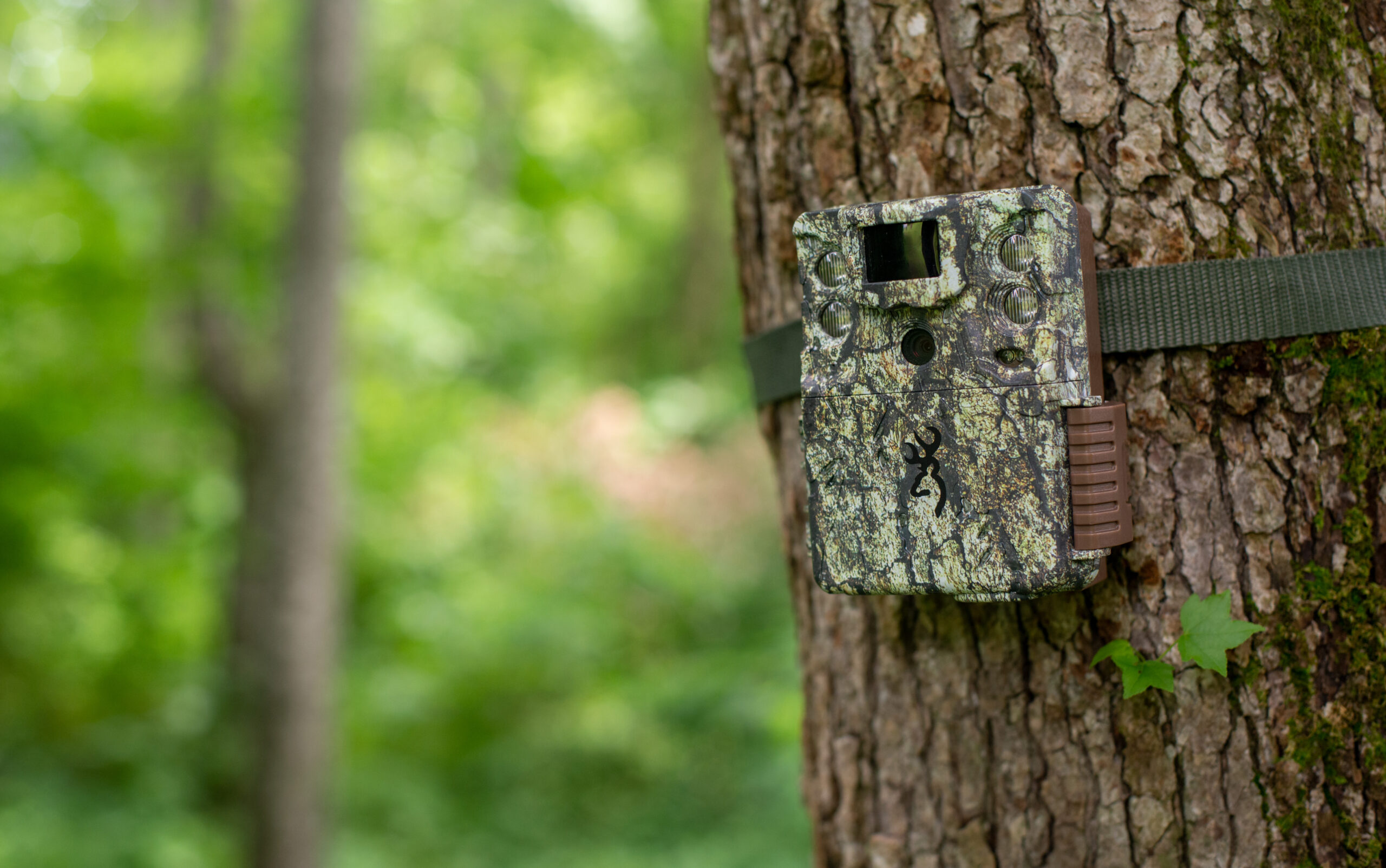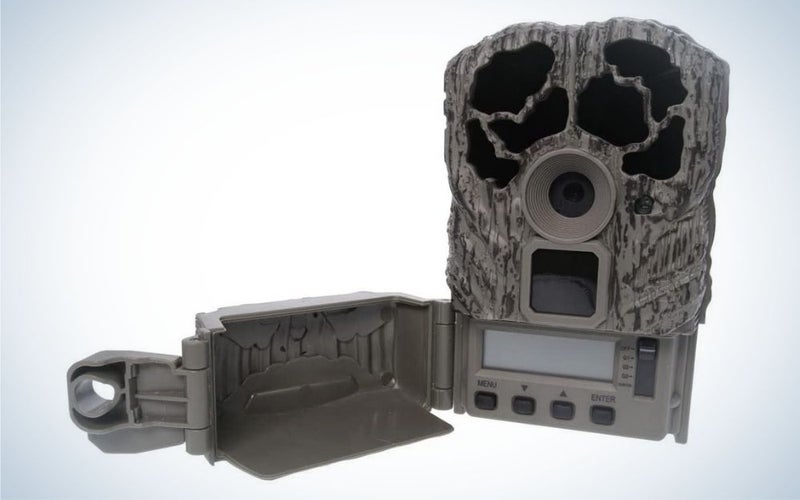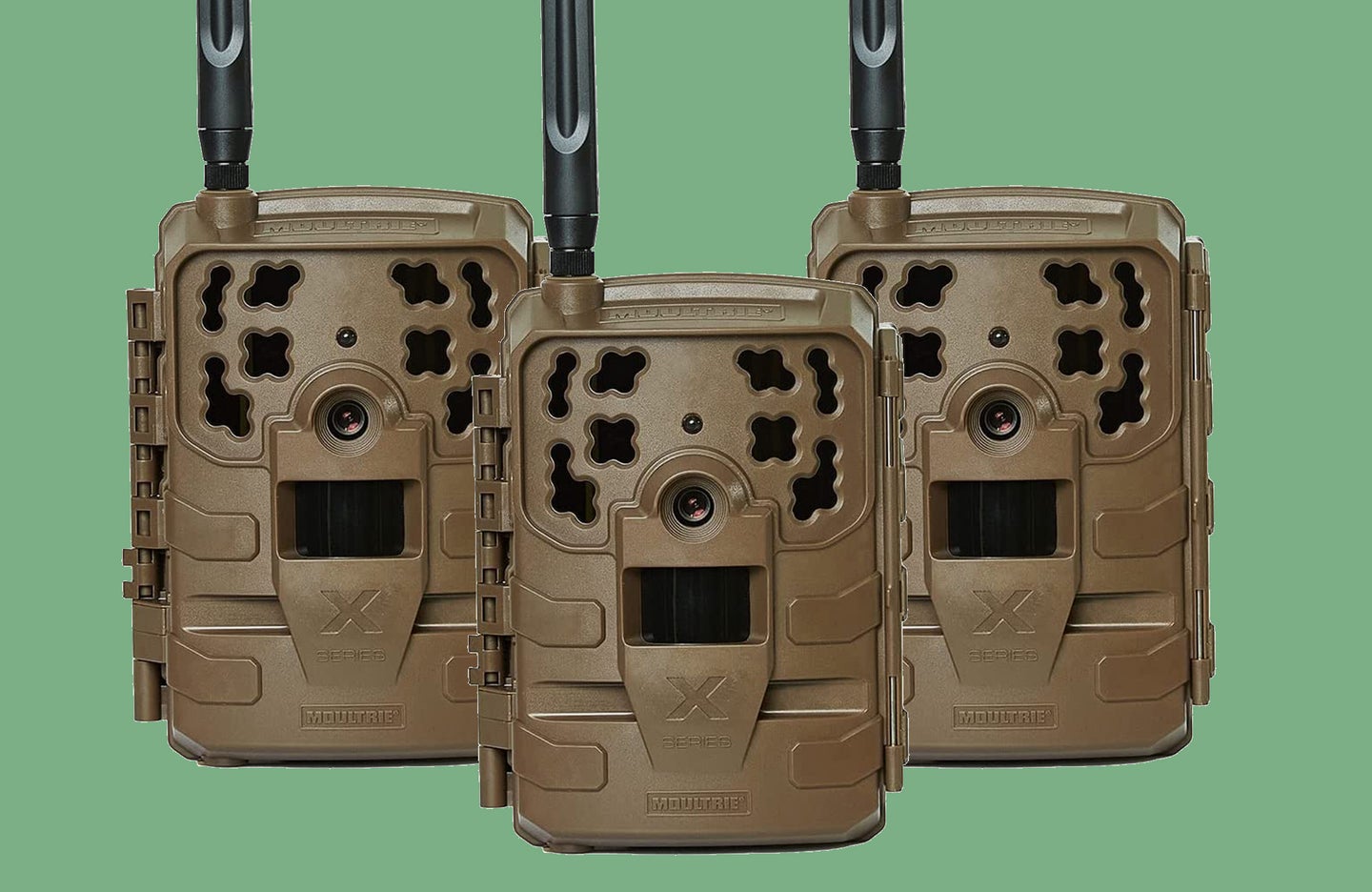
We may earn revenue from the products available on this page and participate in affiliate programs. Learn more ›
What does the pursuit of game, nature watching, and video surveillance all have in common? Super cool spy gadgets that’s what! Although not as slim as a camera embedded in a pair of spectacles, trail cameras are designed to blend into their environment as discreetly as possible. Their hidden design lets them silently capture video and images of unsuspecting subjects in their natural environment. Hunting is one of the earliest traditions held by humanity which, to this day, people participate in all over the globe. Throughout that history, we have made many technological advancements that have increased our success rate out in the field, the newest of which lies in trail cameras. As new cameras reach the market jam-packed with the latest features at wildly different price points, it can be overwhelming if you are new to using trail cameras. Keep reading to discover what to look for and what the best trail cameras under $100 are.
- Best overall: Cabelas Outfitter Gen 3 30MP Black IR Game Camera
- Best for deer: Moultrie Mobile Delta Base Cellular Trail Camera
- Best motion activated: Browning Command Ops Elite 18 MP Trail Camera
- Best budget: Stealth Cam Browtine 16MP Trail Camera
How we picked the best trail cameras under $100
This spring hunting season, we took the opportunity to take a serious look at what makes a great affordable trail camera by testing a few against each other out in the field while in pursuit of either a Rio or Merriam turkey. When looking for the best trail cameras under $100, options are greatly reduced to a more digestible pool to draw from. While there are a large number of choices from online retailers, we wanted to focus specifically on well-known brands with a proven track record of customer satisfaction, product support, and availability in brick-and-mortar locations. From there, we reviewed each camera based on image & video quality, range of motion detection, trigger speeds, weather resistance, price, and any other additional features (GPS, Cellular, Accessories, etc.).
The best trail cameras under $100: Reviews & Recommendations
Best overall: Cabelas Outfitter Gen 3 30MP Black IR Game Camera
Cabela’s
Why it made the cut: The Cabela’s Outfitter Gen 3 Trail Camera has the best image quality making it the best trail camera for under $100.
Specs:
- Megapixels/resolution: 30MP/1080p
- Trigger speed: 0.5 sec
- Special features: Ready to go package, Passive Infrared for increased battery life
Pros:
- Exceptional image quality
- Full 1080p HD video
- Everything you need right out of the box
- Faster than average trigger speed at 0.5 sec
Cons:
- No cellular image upload capabilities
Lacking in only one department, the Cabela’s Outfitter Gen 3 Game Camera is the best trail camera for under $100 overall. The single most important feature of any camera is its ability to capture quality images. With a 30MP camera, your images will come out crystal clear regardless of the shooting conditions. The quality will allow you to see every detail in your environment. On top of that, this camera can capture full 1080p HD video with audio for a more immersive experience. Video clips of animals passing in front of the camera will tell you a lot about their behaviors and direction of travel, helping you plan out your hunt.
As an added benefit, Cabela’s provides you with everything you’ll need right out of the box. No need to worry about finding batteries or whether your SD card is compatible; you’ll be able to head directly out to the field from the store to hang your camera.
The only feature that prevents this camera from being the perfect package is the lack of cellular capabilities. Although, with the addition of cellular, a data plan may put budget-conscious hunters over the $100 mark with the added month-to-month cost. Overall this is one of the best trail cameras under $100 on the market if you are looking to stay right at that price point.
Best for deer: Moultrie Mobile Delta Base Cellular Trail Camera
Brandon Miller
Why it made the cut: This feature-rich trail camera has cellular connectivity for checking your images on your phone. It also has property mapping and subject tagging for easier planning of your deer hunt.
Specs:
- Megapixels/resolution: 24MP/1080p
- Trigger speed: 0.75 sec
- Special features: Ready to go package, Cellular Connectivity
Pros:
- Download images & video from the camera via cellular network
- Full 1080p HD Video with sound
- Weather tracking and property mapping
- Smart tagging of captured subjects
Cons:
- Data plan requires a monthly fee
- Setup is more complex than other cameras
The Moultrie Mobile Delta Base Cellular Trail Camera was one of our favorites from this list. This feature-rich platform surprised us in both performance and its intuitive, easy-to-use interface. Be aware that as a cellular camera, in order to take advantage of all of the features it has to offer, you will need to purchase a data plan from Moultrie Mobile. The plan will come from either Verizon or AT&T, depending on which unit you acquired.
No matter which data plan you decide to go with, Moultrie Mobile gives you access to every feature available within the app. Other manufacturers would require you to pay for access to additional features under a “pay for only what you need” façade, so having free access is an excellent bonus.
The app alone and its interaction with the camera are worth every penny of the initial unit price and the monthly data plan. With the integrated smart tagging feature, any images or videos that the camera records are updated with a tag to categorize your media based on the subject matter. This could be a buck, doe, turkey, person, vehicle, or any of the other tags they are constantly adding to the system. Another feature of the app is a complex mapping system that lets you map out your hunting area and pin key points of interest throughout the property. It will allow you to easily map and plan your hunts with several key points of tracking data collected throughout the scouting season.
In the off-season, this camera does a fantastic job as a remote security camera. With the ability to upload captured media to both the cloud and your mobile device, as long as the camera has a charge and a cellular connection, your property can be under your surveillance from anywhere in the world. One piece of advice, though, is that it’s much easier to download the required app and go through the setup process at home before you get out in the field. With a weak cell signal, this set could take much longer if you try to do it once you get to where you are hanging the camera.
Best motion activated: Browning Command Ops Elite 18 MP Trail Camera
Brandon Miller
Why it made the cut: With the fastest trigger speed on the market, you won’t miss another shot with this camera.
Specs:
- Megapixels/resolution: 18MP/720p
- Trigger speed: 0.3 sec
- Special features: Excellent Battery Life
Pros:
- Extremely fast trigger speed
- Excellent battery life
- Small concealable form factor
- Self-adjusting infrared for well exposed night time photos
Cons:
- Photo and video quality could be better
If a fast action camera is what you are looking for, then the Browning Command Ops Elite is the best motion-activated camera for under $100. A trigger speed of 0.3 sec, puts the Command Ops Elite at the fastest triggered camera in its class. A tenth of a second may not sound like a long time, but when an animal is spooked and running quickly through the path of your camera, it could mean the difference between a clear image of the animal or a blurry tail at the edge of the frame. Sure any camera can capture a deer grazing along as it forages around for food, but if they are looking to leave the area in a hurry, you will wish you had a camera that can switch from standby to shooting in a blink of an eye.
Another noteworthy feature of this camera is its excellent battery life. On a fresh set of batteries, the Browning Command Ops Elite can capture 15,000 images before being completely depleted. Of course, this is with conservative settings with lower resolution images, but it is still a respectable number that most cameras would have trouble matching. A single set of batteries could potentially last an entire hunting season.
Best budget: Stealth Cam Browtine 16MP Trail Camera
Stealth Cam
Why it made the cut: With its affordable price point and ease of use, this camera is a top recommendation for anyone looking to get started with trail cameras.
Specs:
- Megapixels/resolution: 16MP/480p
- Trigger speed: 0.8 sec
- Special features:
Pros:
- Very affordable
- Multiple shooting modes
- Up to 15 sec of video
Cons:
- Build quality is a little lackluster
Perhaps it is your first year of hunting, or you have always wanted an approachable way to get into trail camera use to help with success during hunting season. The Stealth Cam Browtine Trail Camera is a great place to start for the budget-conscious hunter.
While the specifications of this camera aren’t exactly top of the line, they are more than adequate for your hunting needs. With its 16MP camera, you can clearly identify game in high-traffic areas in the wilderness. If you are using this camera during your preseason scouting and planning operations, having a stand-alone unit out in the field over the span of a few days can go a long way in helping you track down the trophy of your pursuit. Capable of recording up to 15 seconds of video at 480p, you can watch video clips of animals as they interact with the environment around them.
As a bonus, since you can pick up this camera at a great price, you may want to consider purchasing a few of them to drastically expand your scouting operations, allowing you to get more eyes in more places helping you be more successful once the season opens.
Things to consider when shopping for the best trail cameras under $100
Before we jump in, if you plan on using your trail camera primarily for hunting, take a moment to review your state regulations on trail camera use during the hunting season, as several states have rules restricting camera use during hunting season.
Picture Quality
Any camera worth its weight in salt will be judged foremost by its picture quality. You can have a $300 trail camera with all the bells and whistles, but if the camera does not perform well, it’s about as useful as a screendoor on a submarine. When assessing a camera’s image quality, important factors boil down to three main points: image clarity, low light or nighttime performance, and video capabilities.
Often the subjects we aim to capture on these devices are more active from dusk to dawn, making the ability to capture crisp images in these extreme lighting conditions paramount. Also, there may be times when video is more important than still images. If that is the case, look for cameras that offer video as a part of their package.
Battery Life
While not as important as picture quality, a trail camera’s battery life can make or break the user experience when placing these devices out in the field. While it may be fun and exciting to go mount your new camera on the perfect lookout tree in a remote location, a camera that burns through batteries will have you making frequent trips to swap batteries.
While a vast majority of the best trail cameras under $100 utilize AA batteries, the number of batteries that are required makes this an important aspect to consider. For example, a feature-rich camera with multiple functions can take 12+ AA batteries to supply the unit with adequate power.
Trigger Speeds
Ever tried to snap a quick photo of a family pet striking a pose just to have them move in the brief moment between when you pressed the shutter button and when your phone actually took the photo? This delay is why a blazing fast trigger speed is vital when considering which trail camera to purchase.
When setting up your silent eye in the woods, you won’t get the opportunity to fine-tune and adjust the camera for the perfect composition. It can be a guessing game with frustrating results if your camera is not lined up just right. Because of this, animals may only partially pass through the camera’s field of view. In those moments, having a fast trigger speed might be the difference between capturing a worthwhile image and capturing nothing at all.
Weather Protection
Trail cameras, by nature (every pun intended here), are meant to be rugged and built well enough to stand up to the elements. So whether you are looking at an entry-level game camera or the latest flagship model, your camera needs to be able to stand up to all conditions outdoors with an emphasis on moisture protection.
Additional Perks
Trail cameras across the board come with a multitude of features that can prove useful depending on what your needs are. Some additional features worth considering during your purchasing decision may include, GPS, weather monitoring, moon phases, daisy chain connectivity (for multi-camera setups), or the ability to upload images and video directly to your phone via cellular connectivity.
For ease of installation, verify what comes in the box when buying a trail camera. Some of the best trail cameras under $100 opt to include everything you need to get you camera installed in the field right out of the box, which is a handy bonus for anyone who doesn’t have a bucket of AA batteries in their vehicle.
FAQs
Q: How much do trail cameras typically cost?
Trail cameras can vary wildly in cost depending on each unit’s features and the company the camera comes from. For instance, a cellular trail camera from Browning may cost $299, but you can find the same camera with similar specs from Moultrie for as little as $99. Likewise, a trail camera with all the bells and whistles from Amazon may be shockingly affordable. Still, you’ll want to check if the company selling the camera is reliable and willing to honor their manufacturer warranty should something go wrong with the camera.
While choosing a more affordable option may seem like the best option, our stance is that you do truly get what you pay for when it comes to any imaging equipment, regardless of its purpose. It’s usually better–for your pocketbook and the environment–to invest more money upfront and keep from having to replace it sooner.
Q: How do trail cameras work?
Trail cameras work by utilizing a complex system of infrared cameras to trigger the main imaging camera. Since standard imaging sensors produce a lot of heat and consume more energy than an infrared sensor, manufacturers opt to use a passive infrared camera to trigger the shutter sequence of the main camera.
Additionally, infrared cameras measure heat differences in the environment to detect whether or not an animal has entered the area. This is beneficial because while the main camera is in a standby state, the onboard computer has not calculated which exposure settings are necessary. If we relied on only the imaging camera to handle the triggering sequence, we could very well miss a multitude of shots for the simple fact that the exposure settings would prevent the camera from seeing any movement.
Q: How do I access photos taken on my trail camera?
You can access photos and videos taken on your trail camera in a couple of different ways. Access largely depends on the features provided by the manufacturer and the camera itself. For example, if your trail camera is equipped with cellular connectivity, you can preview the media on your camera through your computer or smartphone via software developed by the company. On the other hand, if your camera does not have cellular connectivity, you would likely need to venture out to your camera, eject the SD card, and upload them to your computer manually.
Q: How long do the batteries on trail cameras last?
Batteries on trail cameras can last a surprisingly long time. Each camera will vary from one another depending on the number of batteries it can hold versus the features the camera provides. The more features you have, the shorter battery life you can expect.
Camera manufacturers put an emphasis on battery life when developing these cameras, which is why many cameras in today’s market use complex infrared imaging technology. This infrared technology keeps the camera in a low power state, ready to trigger additional features as they are needed. Some cameras can take up to 15,000 images on a fresh set of batteries. While not included on this list, most manufacturers have an optional solar accessory to provide direct power to the camera, circumventing the need even to use batteries.
Final thoughts on the best trail cameras under $100
Purchasing a quality trail camera while working within a budget can be difficult in today’s oversaturated market without spending hours reading review after review. So whether your needs range from unprecedented image quality to remote security surveillance, we vetted well-known manufacturers with a reliable reputation you can trust to ensure that there is a camera here for you.
The post The best trail cameras under $100 in 2023 appeared first on Popular Photography.
Articles may contain affiliate links which enable us to share in the revenue of any purchases made.
